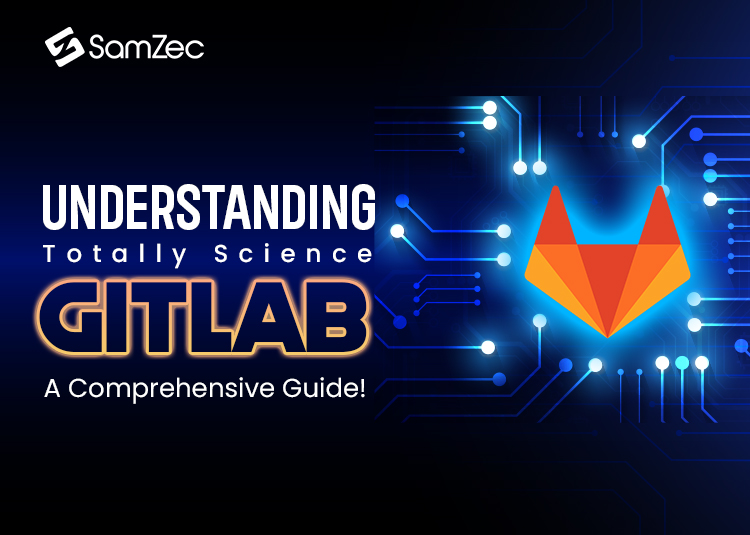The evolution of science has drastically changed the scenarios for engineers, scientists, and software engineers. The invention of any new technology is a combination of different meticulous processes and a series of experiments.
Most engineers, scientists, and software developers wanted a place where they could collaborate that facilitates source code management, Continuous Integration (CI), and much more. Similarly, Totally Science Gitlab furnishes a comprehensive tool-set for software development and software management, coding, and related professionals to collaborate professionally and efficiently. To understand science Gitlab services, the following are the key features;
Features Of Science Gitlab
Gitlab Repository Hosting
It serves as a main bridge between the hosting platforms and the different sources of Technicians (Developers), which is referred to as a distributed control system. Users can easily create dropboxes (Repositories) to store and control their source code.
Web-Based Gitlab Manager
When you access the Science Gitlab website, you see a web-based interface that allows you to manage your git stock, branches, and engaged content. Thus, making an easy approach to visualize and manage the entire version control process. This will also create an easy approach for the user who can access data at any time once you log in to the server.
Collaboration Features: Communication is the main tool when you are working online and avoiding physical appearance. This feature enables you to collaborate with your team members and also with the developers through the tool. For proper understanding it features
- Issue tracking
- Merge request
- Code review
- Wiki
It helps in the development of the software throughout its lifecycle unless the project is done or in the pipeline.
Continuous Integration (CI)
TotallyScience Gitlab is a very comparative tool for software developers. Its advanced gitlab embraces built-in CI capabilities (Enabling developers to test) . It could be automated testing or the deployment of the code. The main task of this feature is to catch bugs in the early stages of the development process and create a more resourceful and consistent database.
Container Registry
A very helpful tool for developers where they can store or manage docker images (Docker Hub has a vast range of images to use for software development). This process is quite useful in terms of modern software development — containerization.
CI/CD Pipelines
The above detail about CI supports the nourishment of the CI/CD (Continuous Integration/Continuous Deployment) channel. The channel is also referred to as “Pipelines” that act as a catalyst to automate the process of deploying applications, testing, building, and delivering a streamlined and reversible workflow.
Security Features
Security is the main tool for every web application; it enhances the safety of the user’s data and maintains the integrity of the database. It also enables us to help identify and dictate the safety standards in the code. It synchronizes with various safety and security scanning tools that deliver the right insights into the security status of the projects.
Scalability
Scalability means it can cater to various projects of different sizes — from small to large-scale projects. It can also be dictated from personal projects to enterprise applications. It proposed multiple options and can be calculated on a premises basis as a cloud-based service.
License Options
Science Gitlab has different editions to cater to millions of users. It dictates and offers a free and open-for-everyone (Community Edition). It also includes a premium source for its paid users to avail the full services of the development with additional features and dedicated support.
GitLab Pages
Science Gitlab pages — it determines the users to craft static websites from their stored stocks. This is a very helpful feature introduced by Gitlab so that users can simply project documentation, blogs, and other content related to their software or manuals.
This is a brief information about the “Totally Science Gitlab” a web-based portal to ease bringing the competitive developers on a single domain to share their knowledge and thoughts. These features help anyone who wants to avail of online services or to compile a strong foundation in its development process. Science Gitlab is directly involved with its other version control and collaboration platforms such as GitHub and Bitbucket.
Now, you might be thinking of joining this useful website and how to access the benefits of this multi-functional platform to devise well-crafted software from scratch. Well, there is nothing more complex but a simple process to make your online presence on Totally Science Gitlab.
How To Make An Account On Science Gitlab
-
Sign Up — Account
-
- Open the Google search console and type Totally Science Gitlab
- Click on “Create Account”
- Create an account using the proper credentials
- Type the unique password that you can remember
- Click on Create Account.
-
Create Repository
- Once the account is created further you need to create your repository account so that you can access all your research data and software.
-
Create Project
- Go to “New Project” > Create a new project where only you can have access to manage your research project.
-
Invite Collaborators
- You can invite other users, software developers, and coders to share their thoughts and ideas. Or you might ask for help from different sources to help you with research projects.
Final Thought
Totally science gitlab with its emergence has deliberately changed the scenarios for different software developers and for newbies who have just stepped into the vast field of Technology. The platform is simple but with major benefits for new users.
Science Gitlab has revolutionized the online platform for delivering valuable services to the user of Gitlab and also tech nerds who are putting efforts into creating competitive software to fill the gap in the market. It’s quite easy to create an account on Gitlab. It’s never too late unless you quit so if you are the one who is seeking a helpful resource, you can access Science Gitlab.




















